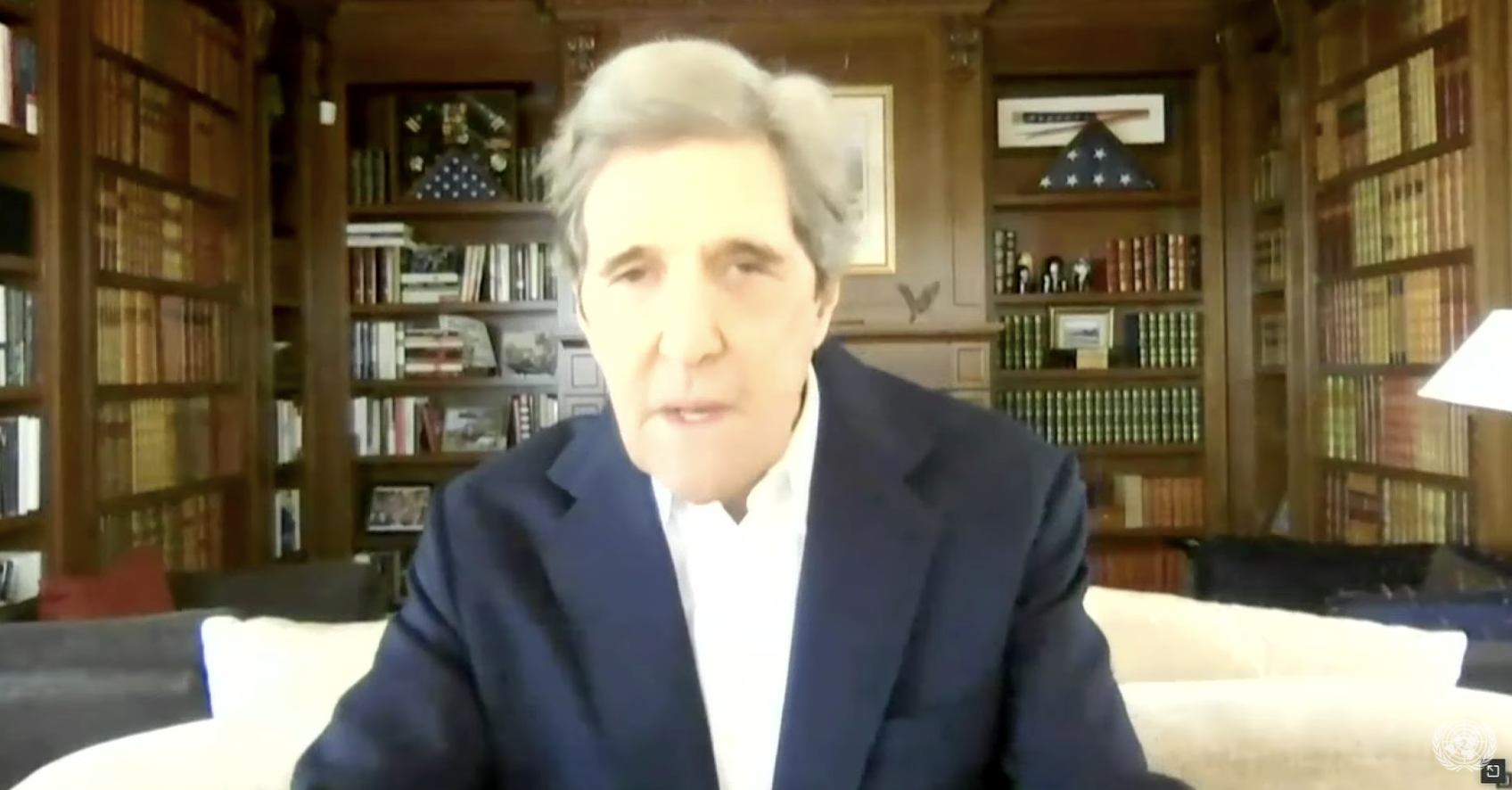Office of Public Participation Listening Sessions: Landowners and Communities Affected by Infrastructure Development
Commission staff will host a series of listening sessions to give members of the public an opportunity to provide their thoughts and ideas about the creation of the Office of Public Participation (OPP).
Pre-registration for speakers is highly recommended. Speaking priority will be provided to members of the public or representatives of Tribal governments who pre-register for a listening session. Following a brief introduction from Commission staff, each session will be open to the public for 3-5 minutes of comment per participant. Participants who have not pre-registered will be invited to speak after pre-registered participants, time permitting. Participants on the call have the option to listen only and can submit though eComment.
In advance of the listening sessions, participants may wish to consider the issues listed below:
- Section 319 of the FPA states that the OPP will be administered by a Director. (16 U.S.C. § 825q–1(a)(2)(A)). In addition to the Director, how should the office be structured?
- Should the Commission consider creating an advisory board for OPP? If so, what role would the board serve and who should be on the board?
- How should the OPP coordinate assistance to persons intervening or participating, or seeking to intervene or participate, in a Commission proceeding?
- To what extent do you, or the organization you represent, currently interact with the Commission? What has hindered or helped your ability to participate in Commission proceedings?
- Have you engaged with other governmental entities—such as local, state, and other federal agencies—on matters involving your interests? If so, how did those agencies engage in outreach, and what practices improved your ability to participate in their processes?
- How should the OPP engage with Tribal Governments, environmental justice communities, energy consumers, landowners, and other members of the public affected by Commission proceedings? Section 319 of the FPA allows the Commission to promulgate rules to offer compensation for attorney fees and other expenses to intervenors and participants who substantially contribute to a significant Commission proceeding if participation otherwise would result in significant financial hardship. (16 U.S.C. § 825q–1(b)(2)). How should the Commission approach the issue of intervenor compensation? What should the OPP’s role be with respect to intervenor compensation? How should the Commission establish a budget for and fund intervenor compensation? What lessons can the Commission learn from the administration of similar state intervenor compensation programs?
The sessions will be open for the public to attend, and there is no fee for attendance. Listening sessions will be audio-only. Call-in information details, including preregistration, can be found on the OPP website. Information will also be posted on the Calendar of Events on the Commission’s website, www.ferc.gov, prior to the event. The listening sessions will be transcribed and placed into the record approximately one week after the session date.
The listening sessions will be accessible under section 508 of the Rehabilitation Act of 1973. For accessibility accommodations, please send an email to accessibility@ferc.gov or call toll free 1-866-208-3372 (voice) or 202-502-8659 (TTY), or send a FAX to 202-208-2106 with the required accommodations.
The public may also submit written comments on these topics to the record in Docket No. AD21-9-000 by Friday, April 23, 2021. Please file comments using the Commission’s eFiling system at https://ferconline.ferc.gov/FERCOnline.aspx. For assistance, please contact FERC Online Support at FERCOnlineSupport@ferc.gov, (866) 208-3676 (toll free), or (202) 502-8659 (TTY).
Climate Change and Social Responsibility: Helping Corporate Boards and Investors Make Decisions for a Sustainable World
- H.R. 1087, the Shareholder Political Transparency Act of 2021
- the Disclosure of Tax Havens and Offshoring Act
- the Climate Risk Disclosure Act
- the Greater Accountability in Pay Act
- the Improving Corporate Governance Through Diversity Act of 2021
- the Paris Climate Agreement Disclosure Act
- the Oil and Minerals Corruption Prevention Act
- Andy Green, Senior Fellow for Economic Policy, Center for American Progress
- Heather McTeer Toney, Environmental Justice Liaison, Environmental Defense Fund and Senior Advisor, Moms Clear Air Force
- Veena Ramani, Senior Program director, Capital Market Systems, Ceres
- James Andrus, Investment Manager, California Public Employees’ Retirement System
- Vivek Ramaswamy, Biotech Entrepreneur and Author
Texas Freeze 101: Why We Need Public Power
Winter Storm Uri has devastated an unprepared, unregulated Texas grid leaving millions without power and at risk of exposure, carbon monoxide poisoning, and death.
Meanwhile, Texas Governor Greg Abbott, alongside the US right wing media apparatus, spent their spare time finding ways to blame this preventable disaster on wind energy and the Green New Deal. Texas Senator Cruz abandoned his constituents during the deadly storm to vacation in Mexico. The wealthy and powerful will do everything they can to evade the climate crisis they profit from.
Come Saturday at 2PM Central to learn the truth about what happened, how climate change and capitalism are at the root of the crisis, and what we can do to stop this from happening again. Author, journalist, and climate expert Kate Aronoff will join us to explain the situation, and directly impacted comrades in Texas will share their experiences and where our movement goes from here. We will also share mutual aid resources and other ways for you to best help out.
Biden's National Climate Task Force Has First Official Meeting, Forms Climate Innovation Working Group
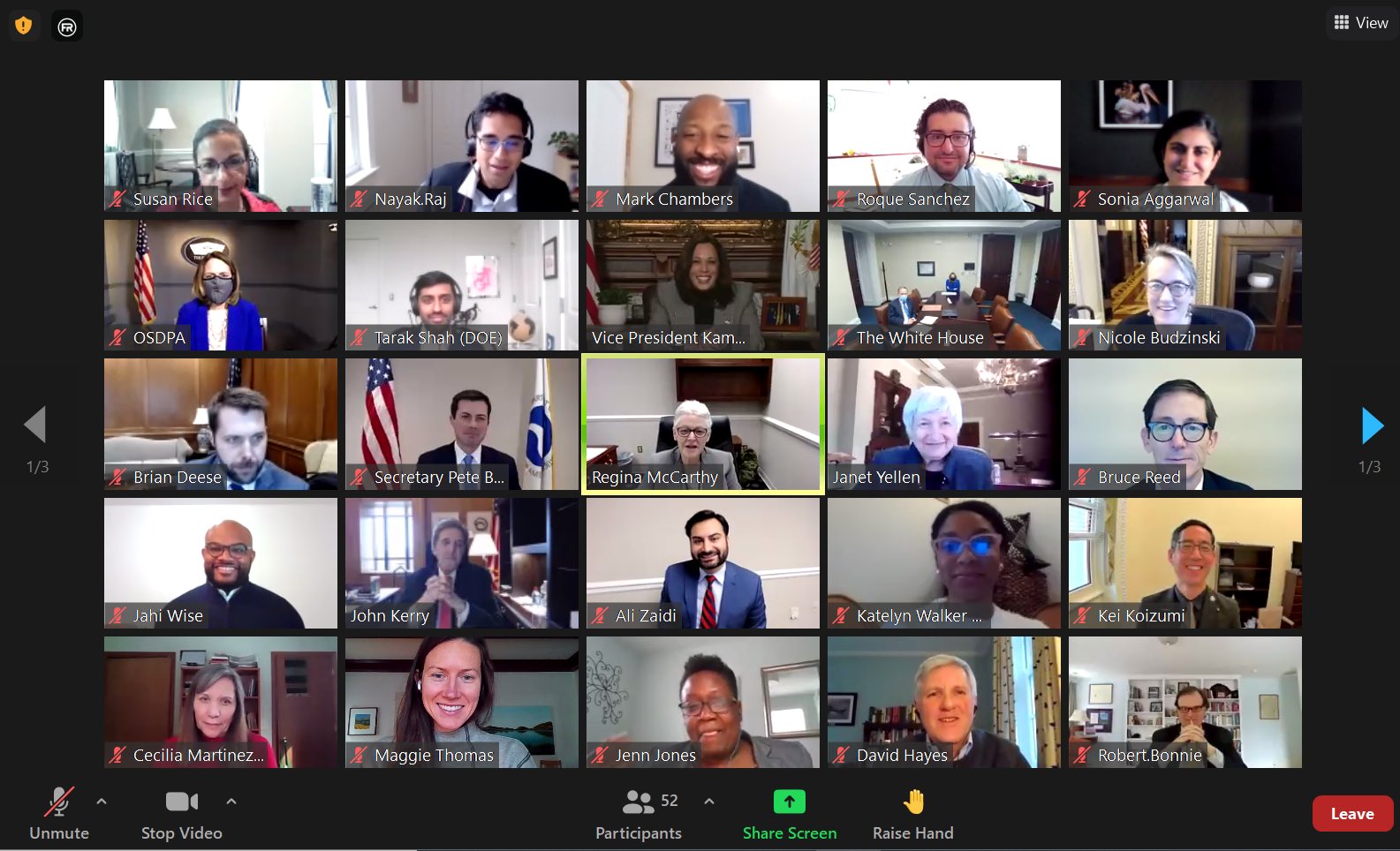 The White House National Climate Task Force, formed by a recent executive order, held its first meeting today. The first tweet from National Climate Advisor Gina McCarthy’s official account displayed the participants.
The White House National Climate Task Force, formed by a recent executive order, held its first meeting today. The first tweet from National Climate Advisor Gina McCarthy’s official account displayed the participants.
Additionally, the White House announced the formation of the Climate Innovation Working Group as part of the Climate Task Force. The working group, co-chaired by the White House Office of Domestic Climate Policy, Office of Science of Technology and Policy, and Office of Management and Budget, will focus on climate technology research, development, and deployment.
According to the White House, the working group’s priorities will be:- zero net carbon buildings at zero net cost, including carbon-neutral construction materials;
- energy storage at one-tenth the cost of today’s alternatives;
- advanced energy system management tools to plan for and operate a grid powered by zero carbon power plants;
- very low-cost zero carbon on-road vehicles and transit systems;
- new, sustainable fuels for aircraft and ships, as well as improvements in broader aircraft and ship efficiency and transportation management;
- affordable refrigeration, air conditioning, and heat pumps made without refrigerants that warm the planet;
- carbon-free heat and industrial processes that capture emissions for making steel, concrete, chemicals, and other important industrial products;
- carbon-free hydrogen at a lower cost than hydrogen made from polluting alternatives;
- innovative soil management, plant biologies, and agricultural techniques to remove carbon dioxide from the air and store it in the ground;
- direct air capture systems and retrofits to existing industrial and power plant exhausts to capture carbon dioxide and use it to make alternative products or permanently sequester it deep underground.
As part of that initiative, the Department of Energy announced that $100 million of Advanced Research Projects Agency-Energy (ARPA-E) funds will be directed to the new ARPA-Climate initiative in support of basic research for advanced climate technology.
White House participants in today’s National Climate Task Force meeting:- Vice President Kamala Harris
- John Kerry, United States Special Presidential Envoy for Climate
- Gina McCarthy, White House National Climate Advisor
- Ali Zaidi, deputy White House National Climate Advisor
- Bruce Reed, White House Deputy Chief of Staff
- David Hayes, special assistant to the president for climate policy
- Sonia Aggarwal, Senior Advisor to the President for Climate Policy and Innovation
- Susan Rice, Director of the United States Domestic Policy Council
- Nicole Budzinski, Chief of Staff at Office of Management and Budget
- Brian Deese, Director of the National Economic Council
- Kei Koizumi, Chief of Staff and Acting Director, Office of Science and Technology Policy; during Obama administration was Assistant Director for Federal Research and Development and Senior Advisor to the Director for the National Science and Technology Council at OSTP
- Cecilia Martinez, senior director for environmental justice, Council on Environmental Quality (CEQ)
- Mark Chambers, senior director for building emissions, CEQ; formerly director of New York City Mayor Bill de Blasio’s sustainability office
- Maggie Thomas, Chief of Staff, Office of Domestic Climate Policy
- Jahi Wise, senior adviser for climate policy and finance in the Office of Domestic Climate Policy https://coalitionforgreencapital.com/cgcs-jahi-wise-heads-to-white-house-domestic-climate-policy-office/
- Pete Buttigieg, Secretary of Transportation
- Janet Yellen, Secretary of Treasury
- Kathleen Hicks, Deputy Secretary of Defense
- Tarak Shah, Chief of Staff, Department of Energy
- Katelyn Walker Mooney, Policy Advisor, Department of Labor, previously the associate general counsel for House labor committee Chairman Bobby Scott
- Jenn Jones, Chief of Staff, Housing and Urban Development
- Robert Bonnie, Deputy Chief of Staff for Policy and Senior Advisor, Climate, Department of Agriculture
- Raj Nayak; was on Biden Department of Labor transition team, and deputy Labor chief of staff during the Obama administration
- Roque Sanchez; was on Biden DOE transition team, and a former White House climate advisor during the Obama administration
- National Climate Advisor Gina McCarthy
- Secretary of the Treasury Janet Yellen
- Secretary of Defense Lloyd Austin
- Attorney General (Merrick Garland, nominated)
- Secretary of the Interior (Deb Haaland, nominated)
- Secretary of Agriculture (Tom Vilsack, nominated)
- Secretary of Commerce (Gina Raimondo, nominated)
- Secretary of Education (Miguel Cardona, nominated)
- Secretary of Labor (Marty Walsh, nominated)
- Secretary of Health and Human Services (Xavier Becerra, nominated)
- Secretary of Housing and Urban Development (Marcia Fudge, nominated)
- Secretary of Transportation Pete Buttigieg
- Secretary of Energy (Jennifer Granholm, nominated)
- Secretary of Homeland Security (Alejandro Mayorkas, nominated)
- Administrator of General Services (no nomination yet)
- Chair of the Council on Environmental Quality (Brenda Mallory, nominated)
- Administrator of the Environmental Protection Agency (Michael Regan, nominated)
- Director of the Office of Management and Budget (Neera Tanden, nominated)
- Director of the Office of Science and Technology Policy (Eric Lander, nominated)
- Assistant to the President for Domestic Policy Susan Rice
- Assistant to the President for National Security Affairs Jake Sullivan
- Assistant to the President for Homeland Security and Counterterrorism Elizabeth Sherwood-Randall
- Assistant to the President for Economic Policy Brian Deese
Biden Names Joe Bryan as Climate Advisor for Department of Defense
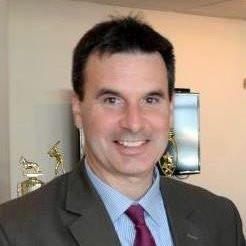 The Department of Defense has named Joseph Bryan its Senior Advisor on Climate, joining several other agencies with this new position.
The Department of Defense has named Joseph Bryan its Senior Advisor on Climate, joining several other agencies with this new position.
Joe Bryan, formally appointed as a Special Assistant to the Secretary of Defense, was the Deputy Assistant Secretary of the Navy for Energy during the Obama administration starting in 2014, coming from the U.S. Senate where he was a military issues staffer. He started his career in energy and mining policy, with jobs in South Africa and Namibia, after earning a masters in energy and environmental policy from the University of Delaware.
After leaving the Obama administration, Bryan joined the Atlantic Council as a senior fellow and founded Muswell Orange, LLC, a one-man clean-energy consultancy. In recent years he wrote numerous pieces and offered testimony on climate change, clean energy, and the military.
In one piece he wrote: “Mitigating the worst impacts of climate change ultimately depends on significant reductions in global carbon emissions. The United States should rejoin the international community and recommit to aggressive cuts in CO2.”
He has also emphasized the strategic issue of the minerals supply chain for batteries and other renewable-energy technology.
Additionally, climate hawk Andy Oare was named the director of digital media for the Department of Defense. During the Obama administration, he was part of the digital media and outreach team for the Department of Energy.
Bryan’s biographical details:
Joseph M. Bryan was appointed as Deputy Assistant Secretary of the Navy for Energy in November 2014. Mr. Bryan served as the Secretariat focal point on all matters pertaining to the Department of Navy’s energy initiatives.Mr. Bryan joined the Department of the Navy from the United States Senate where he served in several professional staff roles. Most recently, Mr. Bryan was the Investigations Team Lead for the Committee on Armed Services. During his tenure, the committee completed investigations into cyber intrusions affecting U.S. Transportation Command contractors, U.S. costs and allied contributions to support the U.S. military presence overseas, the presence of counterfeit electronic parts in the military supply chain, the use of private security contractors in Afghanistan, and the treatment of detainees in U.S. custody.
From 2005 to January 2007, Mr. Bryan served on the Select Committee on Intelligence, where he advised Senator Carl Levin on legal, policy, and programmatic issues affecting the U.S. Intelligence Community. He also represented Senator Levin in legislative negotiations and investigations into pre-Iraq war intelligence.
From 2001 to April 2005, he was responsible for legislative issues related to Senate Judiciary and Governmental Affairs Committees, including judicial nominations, criminal justice, legal reform, and federal employees.
Earlier in his career, Mr. Bryan worked at the University of Cape Town’s Energy and Development Research Center, Cape Town, South Africa. In this position, he coordinated research and briefings for Chairman of the South African Parliamentary Portfolio Committee on Minerals and Energy on the development and regulation of domestic energy industries. He also advised Namibian Ministry of Minerals and Energy on the development of a white paper to guide development of national energy policy.
Mr. Bryan earned his Bachelor of Arts degree in 1991 from Fordham University and a Master of Arts in Urban Affairs and Public Policy, with a focus on energy and environmental policy from the University of Delaware.
Biden Administration Names Climate Advisors at NASA, SEC, USDA, GSA

Administration names Gavin Schmidt, Robert Bonnie, Sonal Larsen, Satyam Khanna climate advisors (clockwise from top left)
National Aeronautic and Space Administration: Gavin Schmidt, director of NASA’s Goddard Institute for Space Studies in New York, will serve in the newly created position of senior climate advisor. Schmidt has been GISS director since 2014. His main research interest is the use of climate modeling to understand past, present, and future climate change, and he has authored or co-authored more than 150 research papers in peer-reviewed literature. He is a fellow of the American Geophysical Union (AGU) and the American Association for the Advancement of Science and was the inaugural winner of the AGU Climate Communication Prize in 2011. He also was awarded NASA’s Outstanding Leadership Medal in 2017. He has a bachelor’s degree in mathematics from Oxford University and a doctorate in applied mathematics from University College London.
Securities and Exchange Commission: Satyam Khanna will serve as Senior Policy Advisor for Climate and Environmental and Social Governance. Khanna was most recently a resident fellow at NYU School of Law’s Institute for Corporate Governance and Finance and served on the Biden-Harris Presidential Transition’s Federal Reserve, Banking, and Securities Regulators Agency Review Team. He was previously a member of the SEC’s Investor Advisory Committee, where he served on the Investor-As-Owner Subcommittee, and was a senior advisor to the Principles for Responsible Investment. Prior to that, he served as Counsel to SEC Commissioner Robert J. Jackson Jr. Earlier in his career, Khanna was a member of the staff of the Financial Stability Oversight Council at the U.S. Treasury Department and was a litigation associate at the law firm McDermott Will & Emery. He is a graduate of Columbia Law School and Washington University in St. Louis. He was also a blogger at ThinkProgress for the Center for American Progress Action Fund.
U.S. Department of Agriculture: Robert Bonnie was named Deputy Chief of Staff for Policy and Senior Advisor, Climate, in the Office of the Secretary: Most recently Bonnie served as an executive in residence at the Nicholas Institute for Environmental Policy Solutions at Duke University. Previously, he served as Director of the Farm and Forests Carbon Solutions Initiative at the Bipartisan Policy Center, where worked to develop new initiatives to combat the climate crisis through agricultural innovation. During the Obama Administration, he served as Under Secretary for Natural Resources and Environment and as a Senior Advisor to Secretary Vilsack for climate and the environment. He worked at the Environmental Defense Fund for 14 years. Bonnie holds a master’s degree in forestry and environmental management from Duke University, and a bachelor’s from Harvard College.
General Services Administration: Sonal Kemkar Larsen, formerly a national advisor for the mayoral level City Energy Project partnership in Salt Lake City Mayor Ralph Becker’s sustainability office. She was a former official at both the White House Council of Environmental Quality and at the Department of Energy. Previously she was a sustainability consultant at the United Nations Environment Program in Bangkok. She will play a role as senior advisor on Climate.
Climate Envoy John Kerry: "We Have a Huge Methane Problem, Folks"
Speaking at the Davos World Economic Forum, US Climate Envoy John Kerry offered a strong critique of natural gas: “Gas is primarily methane, and we have a huge methane problem, folks.”
Kerry was responding to Shell CEO Ben van Breundel’s argument that the US government should reduce demand for fossil fuels and not take action to reduce production by companies like Shell.
UN Deputy Secretary General Amina Mohammed offered an even more blunt criticism of van Breundel’s argument that we can drill our way out of global warming: “You can’t be talking about new [fossil-fuel exploration and production], when the science tells you have to reduce that production 6 percent per annum and you’re increasing by 2 percent.”
Climate Envoy John Kerry Remarks at U.N. Climate Adaptation Summit
Remarks by U.S. Special Presidential Envoy for Climate, John Kerry at the opening of the Climate Adaptation Summit 2021.
Transcript:
It’s a privilege to be able to be with you. And let me start by thanking Prime Minister Rutte and the government of the Netherlands for hosting this important and timely meeting.I’m really delighted to be here. I also want to thank, if I may, Secretary General Guterres for his tireless leadership on climate change. And of course my friend Ban Ki-Moon, who was central as we negotiated the Paris agreement and brought it into force. And he’s been a partner not just on climate but on many other things and challenges.
Three years ago, scientists gave us a pretty stark warning. They said we have 12 years within which to avoid the worst consequences of climate change. Now we have nine years left. And I regret that my country has been absent for three of those years.
In the United States, we spent 265 billion dollars in one year for three storms, just cleaning up after those storms. Last year, one storm, 55 billion dollars.
We’ve reached the point where it is an absolute fact that it’s cheaper to invest in preventing damage, or minimizing it at least, than cleaning up. Now, without question, I think, everybody understands this, the best adaptation is to treat the crisis as the emergency that it is and do more to hold the earth’s temperature increase to the Paris-stated 1.5 degrees. I think scientists are more and more landing on the 1.5 as a critical figure.
A 3.7 to 4.5 increase centigrade, which is exactly the path that we are on now, invites for the most vulnerable and poorest people on earth fundamentally unlivable conditions. So our urgent reduction of emissions is compelled by public conscience and by common sense. President Biden has made fighting climate change a top priority of his administration. We have a president now, thank God, who leads, tells the truth, and is seized by this issue.
And President Biden knows that we have to mobilize in unprecedented ways to meet a challenge that is fast accelerating. And he knows we have limited time to get it under control. For that reason, the United States immediately rejoined the Paris agreement. And we intend to do everything we possibly can to ensure that COP26 results in ambitious climate action, in which all major-emitter countries raise ambitions significantly, and in which we help protect those who are the most vulnerable.
We have already launched our work to prepare a new U.S. nationally determined contribution that meets the urgency of the challenge. And we aim to announce our NDC as soon as practicable.
The administration also intends to make significant investments in climate action, both domestically and as part of our efforts to build back better from COVID. And internationally, we intend to make good on our climate finance pledge.
In the long term driving towards net zero emissions no later than 2050, and keeping a 1.5 degree limit within reach remain the best policies for climate resilience and adaptation. There is simply no adapting to a three or four degree world except for the very richest and most privileged. At the same time, we have to also build resilience to protect communities from the impacts of climate change that already built in to the emissions that are in the atmosphere.
Now some of these impacts are inevitable, because of the warming that’s already taken place. But if we don’t act boldly and immediately by building resilience to climate change, we are likely going to see dramatic reversals in economic development for everybody. Poor and climate-vulnerable communities everywhere will obviously pay the highest price.
So the United States will work on three fronts to promote ambition and resilience and adaptation: leverage U.S. innovation and climate data and information to promote a better understanding and management of climate risk, especially in developed countries; we will significantly increase the flow of finance, including concessional finance, to adaptation and resilience initiatives; we will work with bilateral and multilateral institutions to improve quality of resilience programming; and we will work with the private sector, in the United States and elsewhere in developing countries, to promote greater collaboration between businesses and the communities on which they depend.
And it is our firm conviction throughout all of our administration every agency is now part of our climate team. And only together are we going to be able to build the resilience to climate change that is critical to save lives and meet our moral obligation for future generations, and to those currently living in very difficult circumstances. So we’re proud to be back. We come back, I want you to know, with humility, for the absence of the last four years, and we’ll do everything in our power to make up for it.
Green New Appalachia: The Smart Way To Sell Climate Action To Joe Manchin
This post is an expanded version of a Twitter thread.
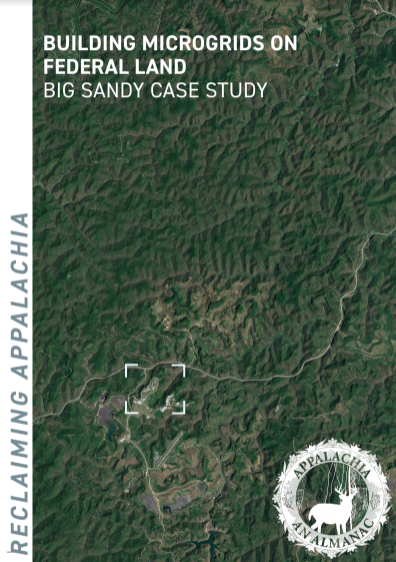 With the pair of Democratic U.S. Senate victories in Georgia, the Democratic Party will have control of the White House and both chambers of Congress come January 20th. West Virginia’s Democratic senator, Joe Manchin, will become the chair of the Committee on Energy and Natural Resources, and will hold tremendous power over any climate legislation.
With the pair of Democratic U.S. Senate victories in Georgia, the Democratic Party will have control of the White House and both chambers of Congress come January 20th. West Virginia’s Democratic senator, Joe Manchin, will become the chair of the Committee on Energy and Natural Resources, and will hold tremendous power over any climate legislation.
While I’m sure that part of bribing Manchin to go along with a series of climate bills as bold as President-elect Joe Biden’s campaign platform will require funds for coal-industry boondoggles like direct air capture and carbon-capture sequestration, as well as for advanced nuclear technology, we ought to be a bit more creative than that.
Here are a few other ideas to consider:- New funds for building pumped hydroelectric storage facilities in Appalachia. These use abandoned coal mines to create a low-tech battery for renewable energy storage, pumping water into the uphill mines when production is high and releasing it through turbines when it wanes.
- Ending the federal grant program that incentivizes converting abandoned strip mines into federal prisons. Those funds should go toward building up the clean energy and electrovoltaic manufacturing facilities in Appalachia on sites that have already been cleared or flattened sites that are adjacent to transportation infrastructure.
- Decommissioning the network of prisons in Appalachia, converting their onsite and resilient electricity generation infrastructure into community-based electric co-ops. Every prison there has the ability to island itself off from the grid and power itself. Give that power to the people of Appalachia.
- Investing in the now-closed north-south railway that could connect Appalachia to Atlanta in the South, Pittsburgh to the North, Columbus and St. Louis to the West, and the entire northeast corridor to the East. A massive corridor already exists and just needs track upgrades for it to be active.
- Offering Appalachia up as the first pilot site for a new Climate Conservation Corps that puts people to work capping orphaned wells, remediating brownfield and other toxic sites, and reforesting the hiking, hunting, and other recreational landscapes of the region.
The best part of it all is that “bribing” Joe Manchin to go along with a more progressive climate agenda is really just a way of driving investment to some of the people and places that need it most—in this case, Central Appalachia.
Billy Fleming is the Wilks Family Director of the Ian L. McHarg Center in the Weitzman School of Design. and a senior fellow with Data for Progress.
Biden Transition Packed With Climate Hawks
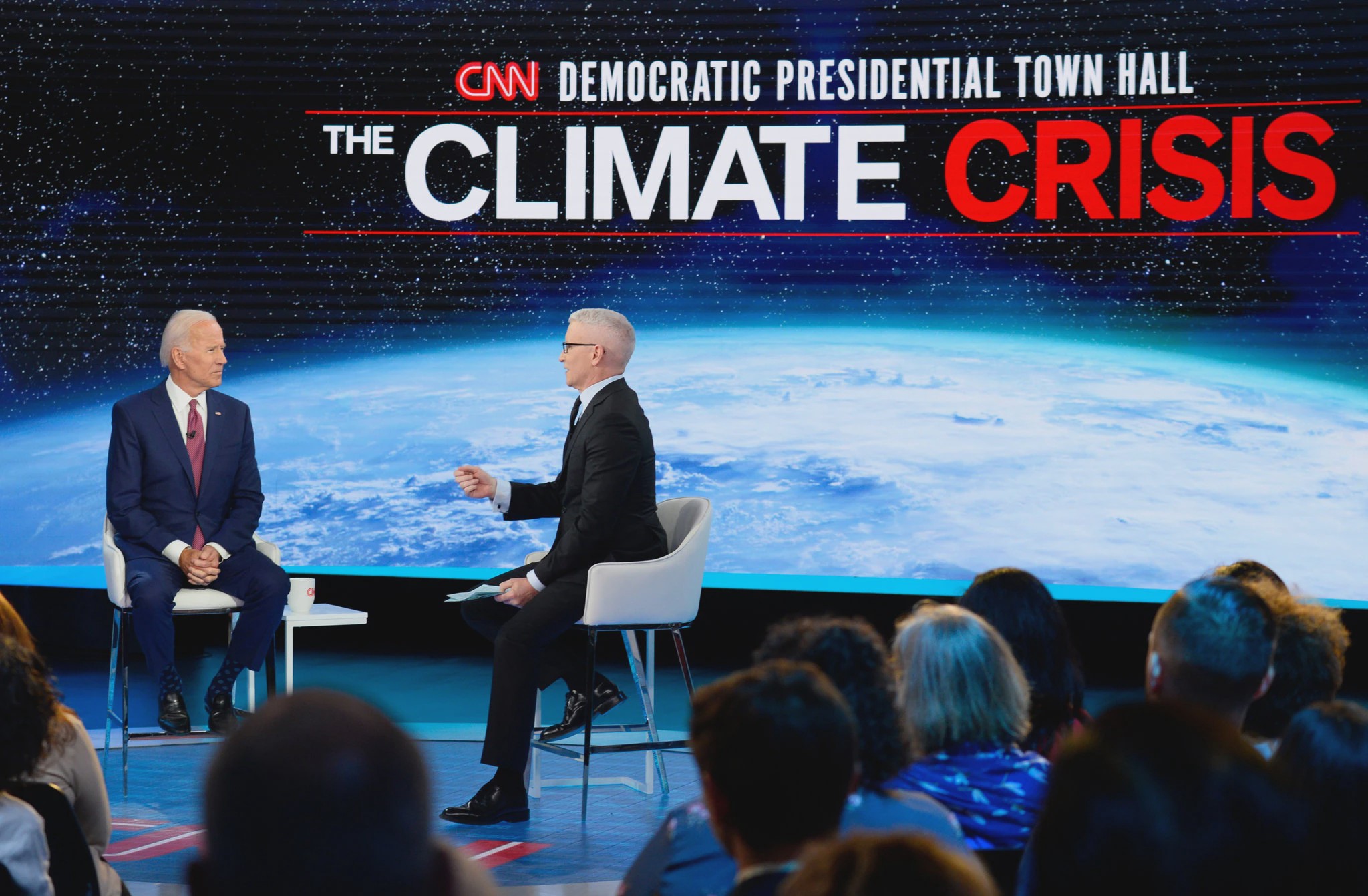 Even though the loser of the presidential election, Donald Trump, continues his quest for autogolpe, President-elect Joe Biden’s transition team is hard at work preparing his new administration. Among the hundreds of staff and volunteers comprising the agency review teams are dozens of climate hawks. These are people with significant experience in climate policy and politics. Some have careers rooted in environmental justice, while others are technologists.
Even though the loser of the presidential election, Donald Trump, continues his quest for autogolpe, President-elect Joe Biden’s transition team is hard at work preparing his new administration. Among the hundreds of staff and volunteers comprising the agency review teams are dozens of climate hawks. These are people with significant experience in climate policy and politics. Some have careers rooted in environmental justice, while others are technologists.
Cabinet departments are listed in order of creation, an approximate reflection of their power and significance within the federal government. This post will be continually updated.
State (nominee: Tony Blinken)- Susan Biniaz, the lead climate lawyer and climate negotiator in the State Department from 1989 to 2017, and was central to the drafting of the Paris agreement. She is presently a senior fellow at the UN Foundation and lectures on international climate negotiations at Yale (her alma mater) and Columbia University (from which she received her law degree).
- Veteran diplomat Bathsheba Crocker, now a top official at the international humanitarian aid organization CARE, co-authored an open letter strongly criticizing Trump for abandoning the Paris accord. (Biden’s intended National Security Adviser Jake Sullivan was also a signatory.) In an interview last year, she described how climate change is increasing disasters and driving displacement and conflict.
Treasury (nominee: Janet Yellen)
- Andy Green, a U.S. Securities and Exchange Commission lawyer from 2014 to 2015 and a longtime counsel for U.S. Sen. Jeff Merkley (D-OR), worked on pricing climate risk while at the SEC. As a Center for American Progress fellow, he has been an outspoken advocate for ending the financing of carbon polluters.
- Marisa Lago, former Assistant Secretary for International Markets and Development, has experience with international climate finance as well as urban climate adaptation planning. Lago is presently the director of city planning for New York City, having held similar roles in the 1990s for Boston and New York City. Before joining the Obama administration, Lago was Global Head of Compliance for Citigroup after a similar role at the S.E.C. running the Office of International Affairs.
- Damon Silvers, long-time counsel and policy director for the AFL-CIO, has served on the board of Ceres for many years, advocating for labor’s interests in a green economy. He received his B.A., M.B.A., and J.D. from Harvard University and supported worker and divestment campaigns while a student there.
- Sharon Burke, Obama’s assistant secretary of defense for operational energy, is one of the leading climate hawks in U.S. foreign policy. In 2008, she organized a war game for U.S. military and diplomatic leadership on the climate crisis. She has recently served on review boards for the National Science Foundation, National Renewable Energy Laboratory, Oak Ridge National Laboratory, and the World Economic Forum in support of decarbonizing the global economy. She has published work on extreme weather and the environmental costs of war. She received her B.A. from Williams College and master’s degree from Columbia University.
- Prominent environmental law scholar Richard Lazarus, a Harvard Law professor. His most recent book, The Law of Five, reviews the landmark Massachusetts v. EPA Supreme Court case which affirmed that greenhouse emissions are pollution. He served as the executive director of the National Commission on the BP Deepwater Horizon Oil Spill and Future of Offshore Drilling. In 1992, he was part of Clinton’s transition team for the Environment and Natural Resources Division of the U.S. Department of Justice. In a recent interview, he stated, “There’s no greater problem that overwhelms us these days in environmental law than climate change.”
- Maggie Thomas is the political director at Evergreen Action, a climate advocacy group run by veterans of Jay Inslee’s presidential campaign. Thomas was climate policy advisor for the Elizabeth Warren campaign after Inslee’s campaign ended, where she was deputy climate director. She joined Inslee’s campaign from Tom Steyer’s NextGen America organization. She holds a B.S. in biology and environmental management from Trinity College and a masters in environmental management from the Yale School of Forestry and Environmental Studies.
- Kate Kelly served in the Obama administration as senior adviser to and communications director for Secretary of the Interior Sally Jewell. She is the director of public lands at the Center for American Progress. Previously, she was communications director for Sen. Arlen Spector (R-Penn.) She has written on how the United States can equitably abandon fossil-fuel extraction and embrace renewable energy development on public lands.
- Elizabeth Johnson Klein, an environmental attorney and former Deputy Assistant Secretary at Interior for Policy, Management & Budget during the Obama administration and served as assistant to the Secretary of the Interior in the Clinton administration. Klein is now the Deputy Director of the State Energy & Environmental Impact Center at NYU School of Law. For years she worked with Obama and Clinton Interior official David Hayes, the center’s director. She received her B.A. in economics from George Washington University and her JD from American University, where she was president of the Environmental Law Society. She has written on environmental justice and the dire need for climate leadership.
- Robert (Bob) Anderson is a legal scholar whose career has been focused on protecting Native American water rights and environmental protection. In 2016, he reviewed the Dakota Access Pipeline conflict, noting that “the colonial process is on full display.” (He also wryly noted, “One might think that a multi-state project to carry a toxic substance would require an extensive federal appraisal, safety, and permitting process. Not so here.”)
- Team lead Robert Bonnie, former U.S.D.A. Under Secretary for Natural Resources and Environment and Senior Advisor to Secretary of Agriculture Tom Vilsack for environment and climate change, is the co-author of the Climate 21 Project’s U.S.D.A. chapter, which lays out a comprehensive climate agenda for the agency. Now a scholar at Duke University’s environmental policy institute, Bonnie was formerly the vice president for land conservation for the Environmental Defense Fund. He has a master’s in environmental management from Duke and a B.A. from Harvard.
- Meryl Harrell, now the executive director at Southern Appalachian Wilderness Stewards, worked for Bonnie at the U.S.D.A. and was his co-author on the Climate 21 Project chapter. She has a B.A. in geoscience and environmental studies from Princeton and a J.D. from Yale Law School.
- Jonathan Coppess, former chief counsel for the Senate Agriculture Committee and administrator of the U.S.D.A. Farm Service Agency, has worked on biofuels programs including the Renewable Fuels Standard and biomass crops as well as several land, water, and soil conservation programs for farmers.
- Andrea Delgado is a co-founder of Green Latinos, a national Latino environmental justice organization. Currently the chief lobbyist for the United Farm Workers Foundation, she was previously legislative director of the Healthy Communities program at Earthjustice.
- John Padalino is the former administrator for USDA’s Rural Utilities Service, having also served as Chief of Staff to the Under Secretary for Rural Development to Acting Principal Deputy General Counsel in the department. He works on rural water and electric cooperatives and is now general counsel to Bandera Electric Cooperative, a rural Texas electricity provider that has been working on smart grids and solar deployment for its members.
- Jeffrey Prieto is a long-time Department of Justice environmental lawyer who helped set up its environmental justice division. He rose to general counsel at USDA during the Obama administration. He is presently general counsel for the Los Angeles Community College District.
- Karen Hyun, Ph.D. is the former Deputy Assistant Secretary for Fish and Wildlife and Parks at the Department of the Interior and was Interior Secretary John Bryson’s senior policy adviser on energy and environment issues. She is now Vice President for Coastal Conservation at the National Audubon Society. She has a Ph.D. in Marine Affairs at the University of Rhode Island M.S. and B.S. in Earth Systems from Stanford University.
- Kathryn Sullivan, Ph.D., former NOAA administrator. Both an oceanographer and astronaut, she is the only human to have both walked in space and visited the Challenger Deep. She served as NOAA’s chief scientist during the Clinton administration. She received her bachelor’s in earth sciences from U.C. Santa Cruz and her Ph.D. in geology from Dalhousie University. She has written on the urgency of the climate crisis and fought attempts by climate denier Rep. Lamar Smith (R-Texas) to hobble her agency.
- Political scientist Todd Tucker, director of governance studies at the Roosevelt Institute, author of The Green New Deal: A Ten-Year Window to Reshape International Economic Law. Tucker has a bachelor’s degree from George Washington University and a PhD from the University of Cambridge. He was the long time research director at Public Citizen.
- Kris Sarri, President and CEO, National Marine Sanctuary Foundation. She was a climate and oceans Senate staffer with Sen. Jack Reed (D-R.I.) from 2006 to 2010, and worked in the Obama administration as chief climate and oceans staff in the Commerce Department, and rose to senior positions at the Office of Management and Budget and Interior. An Ann Arbor native, she received her MS and MPH from the University of Michigan and BA from Washington University in St Louis.
- Dr. Sandra Whitehouse, oceanographer and marine policy expert who has studied the impacts of climate change on our oceans. She is a senior policy advisor for the Nature Conservancy and the wife of Sen. Sheldon Whitehouse (D-R.I.). Dr. Whitehouse holds a B.S. from Yale University and a Ph.D. in biological oceanography from the Graduate School of Oceanography at the University of Rhode Island. As her husband has done on the Senate floor, Dr. Whitehouse has raised the alarm about the crisis of climate pollution. “We are just beginning to understand the far-reaching impacts temperature change is having on ecosystems and wildlife. We are seeing the entire collapse of deep-sea ecosystems, and we don’t know what those ramifications are.”
Labor
- Josh Orton, senior policy advisor to climate champion Sen. Bernie Sanders (I-Vt.). As Orton said when Sanders unveiled his climate plan during his presidential campaign, “This threat is beyond ideology — it’s a question of life and death.”
Health and Human Services none
Housing and Urban Development none
Transportation
- Patty Monahan, lead commissioner on transportation for the California Energy Commission. Monahan has worked on clean transportation policy and advocacy for the Energy Foundation, the Union of Concerned Scientists, the Environmental Protection Agency, and Lawrence Berkeley National Laboratory. She received a B.S. in environmental studies from U.C. Berkeley and an M.S. from the Energy Analysis and Policy program of the University of Wisconsin. Monahan: “Climate Change was and remains the single biggest problem facing our world and energy is a major piece of the puzzle.”
- Dr. Austin Brown, executive director of the UC Davis Policy Institute for Energy, the Environment, and the Economy. Brown was the Assistant Director for Clean Energy and Transportation in the Obama White House’s Office of Science and Technology Policy. He has also worked in the Department of Energy and the National Renewable Energy Laboratory. He holds a B.S. in physics from Harvey Mudd College and a Ph.D. in biophysics from Stanford University. He is working towards a zero-carbon transportation sector.
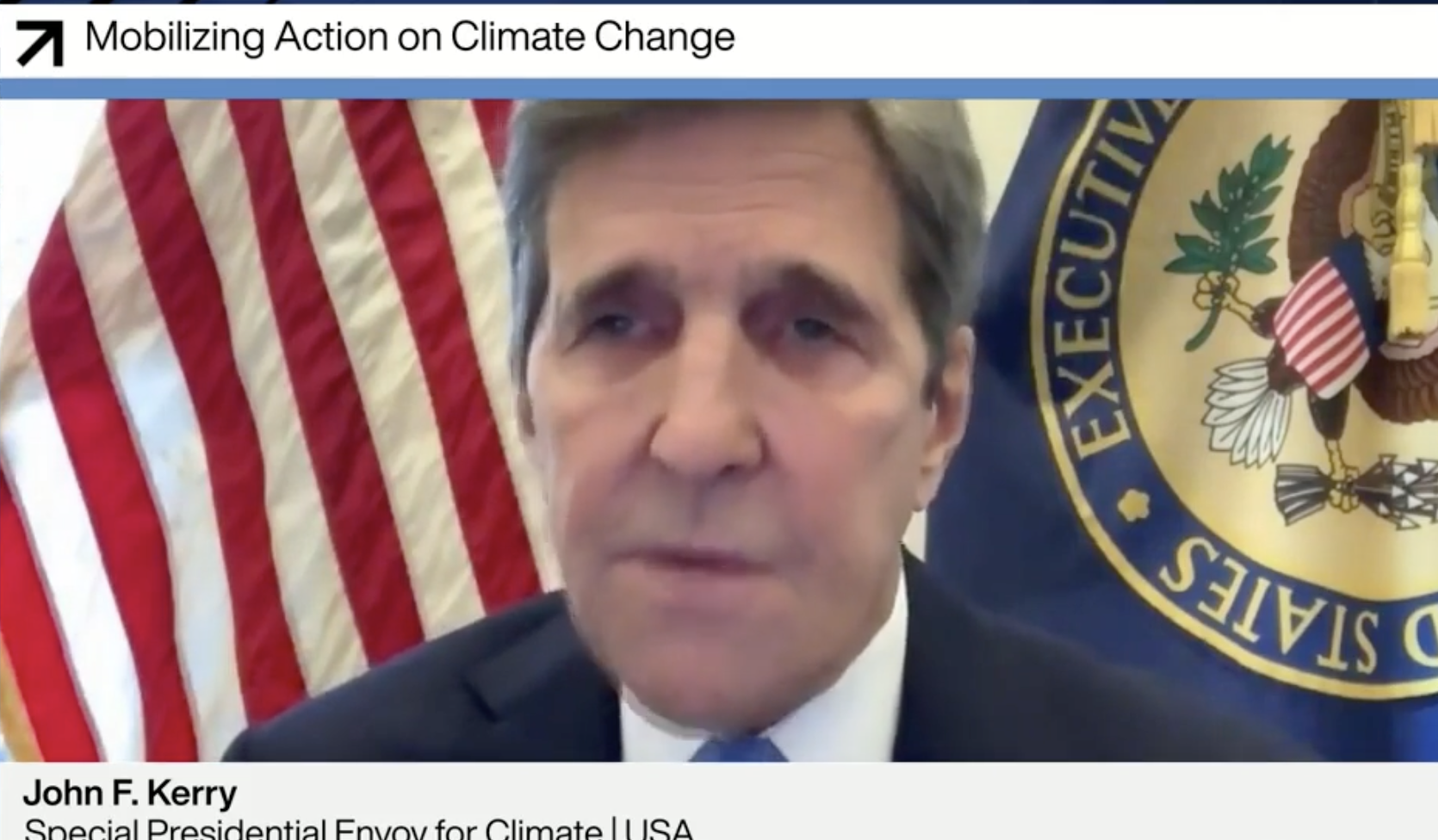 Speaking at the Davos World Economic Forum, US Climate Envoy John Kerry offered a strong critique of natural gas: “Gas is primarily methane, and we have a huge methane problem, folks.”
Speaking at the Davos World Economic Forum, US Climate Envoy John Kerry offered a strong critique of natural gas: “Gas is primarily methane, and we have a huge methane problem, folks.”